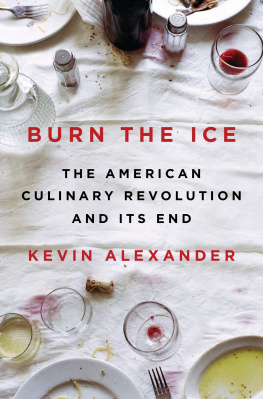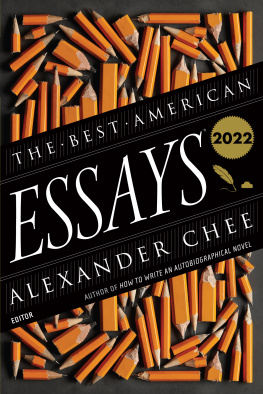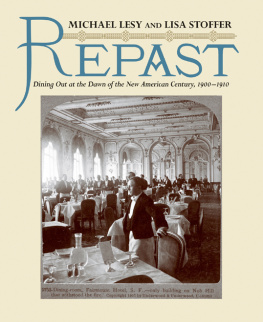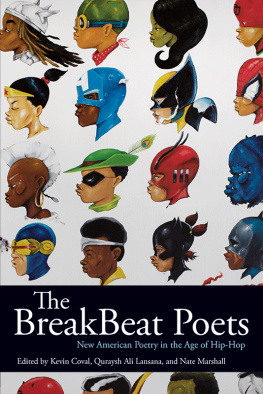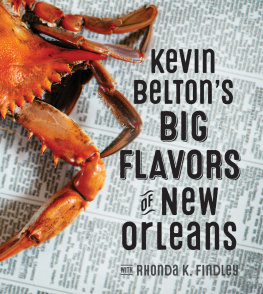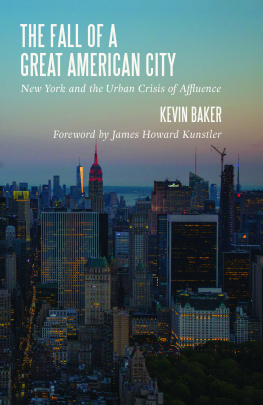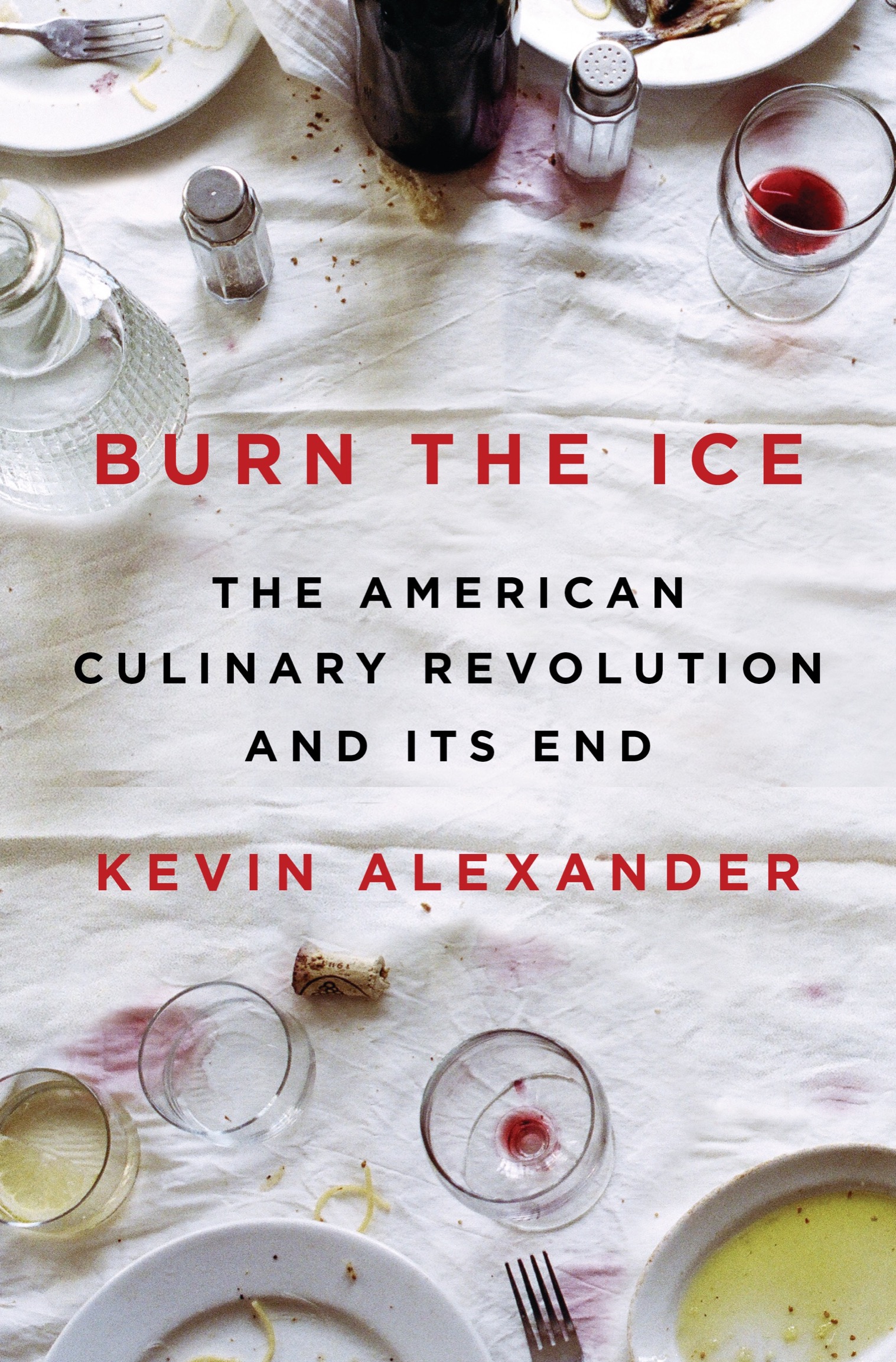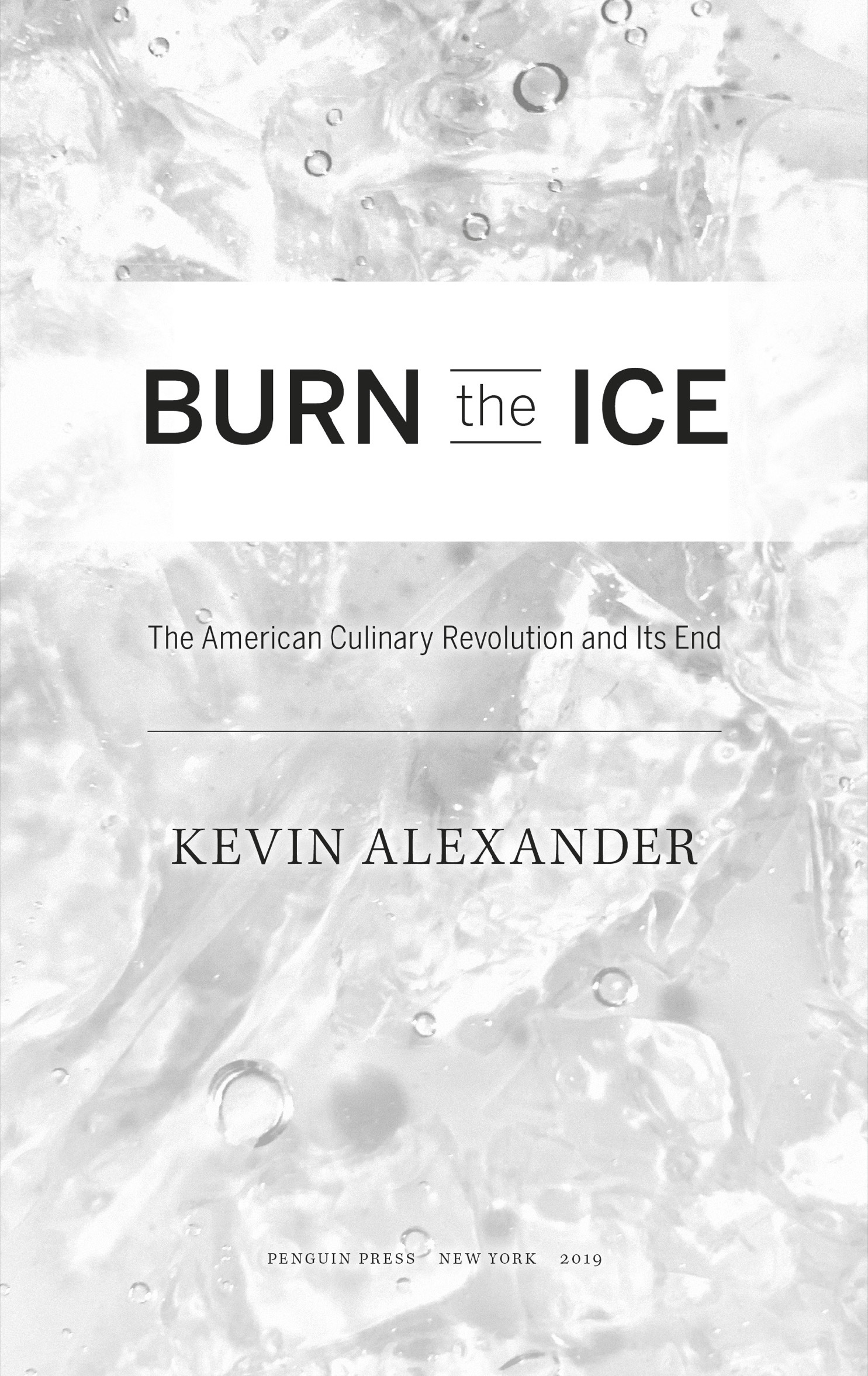PENGUIN PRESS
An imprint of Penguin Random House LLC
penguinrandomhouse.com
Copyright 2019 by Kevin Alexander
Penguin supports copyright. Copyright fuels creativity, encourages diverse voices, promotes free speech, and creates a vibrant culture. Thank you for buying an authorized edition of this book and for complying with copyright laws by not reproducing, scanning, or distributing any part of it in any form without permission. You are supporting writers and allowing Penguin to continue to publish books for every reader.
LIBRARY OF CONGRESS CATALOGING-IN-PUBLICATION DATA
Names: Alexander, Kevin (Food writer), author.
Title: Burn the ice : the American culinary revolution and its end / Kevin Alexander.
Description: New York : Penguin Press, 2019. | Includes bibliographical references and index.
Identifiers: LCCN 2019006584 (print) | LCCN 2019016459 (ebook) | ISBN 9780525558033 (ebook) | ISBN 9780525558026 (hardcover)
Subjects: LCSH: CooksUnited States. | Creative ability in cookingUnited States. | Food industry and tradeUnited States.
Classification: LCC TX649.A1 (ebook) | LCC TX649.A1 A44 2019 (print) | DDC 641.50973dc23
LC record available at https://lccn.loc.gov/2019006584
Version_1
For Wendy, Annie, and Peter
In the American din, that small thing was everything.
George Packer, The Unwinding
CONTENTS
Introduction
On November 4, 2011, a restaurant opened in San Francisco.
AQan acronym for As Quotedwas the venture of first-time restaurateur Matt Semmelhack and veteran chef Mark Liberman, and it featured an almost fanatically seasonal menu plus a design component (including bar tops and waiters uniforms) that changed along with the food. It was experimental and ambitious and in a Mid-Market neighborhood in San Francisco that had been all but abandoned by the restaurant industry. Minutes before their friends and family night kicked off, theyd been recruiting said friends and family to sweep construction debris off their stoves. The gas was turned on just hours before. The kitchen staff had not yet used the equipment. They may not have yet had a health permit. And then the next night they opened this jumble of hopes and dreams and money to the public. Like most opening nights, it was both incredibly euphoric and rewarding and also completely terrible.
That euphoric honeymoon lasted exactly one month. Then they had to pay all the bills from the build-out. Despite being incredibly organized and a compulsive planner, Semmelhack somehow hadnt realized they would have to cut a separate check to pay sales tax. One day, an hour before service was meant to start, he was with his wife, Robin, a professional ballerina with the Smuin Ballet in San Francisco, at the printer getting new menus. When they got back in the car, Semmelhack sat at the steering wheel, and wept. They were out of money, he told Robin. This was all a very bad mistake.
When he finally pulled himself together, he took a hard look at what the restaurant was doing. Shortly after launching, AQ had lunch, dinner, and brunch service seven days a week. That was unsustainable (and also insane). They shortened dinner service to five days a week, and cut lunch service, which meant laying off some daytime staff. Semmelhack feared that was just the beginning. But then, by the grace of Michael Bauer, they got their first review in the San Francisco Chronicle. Bauer, the longtime Chronicle critic, gave them three and a half stars for food and three overall.
A few minutes after midnight on the night it came out, Semmelhack had gone to the convenience store two doors down and bought the paper. He brought it back, and he and Liberman read it together seated at the chefs counter. It was glowing. They both cried, and then Semmelhack went back to the store and bought a dozen more.
Overnight, the restaurant went from the verge of closure to rousing success. Whereas theyd been averaging about 75 covers a night (or one turn of a table), a few months later they were getting 250. National reviews started pouring in. They were James Beard Foundation finalists for Best New Restaurant in America, and appeared on Esquires 2012 Best New Restaurants list. Theyd gone from a neighborhood restaurant to a national dining destination. In keeping with their newfound reputation, they pivoted the menu, making it a little fancier, increasing the price of entres, trying to serve fewer people a night but charge them more.
In early May 2012, Semmelhack, Liberman, and their wives flew out to New York City for the James Beard Awards. Nicknamed the Oscars of food, the Beards are the biggest night for the industry, and they had been getting increasingly competitive and visible as the country got more and more smitten with its food stars. Semmelhack was blown away to be there. Though they didnt win, later that night they went to Gramercy Tavern and saw Union Square Hospitality Group CEO and legendary restaurateur Danny Meyer and his wife standing in the door. Meyers restaurants had won several awards, so they were in a festive mood. Semmelhack, a huge fanboy of Meyers, nervously stood in a line of well-wishers waiting to shake his hand. When it was finally his turn, Semmelhack stammered out that he was inspired by Meyer and his book Setting the Table to open his own restaurant. Then he turned to Meyers wife and said, And this must be Audrey.
Meyer looked at him, laughed slightly, and then asked the name of his restaurant. AQ, Semmelhack told him. Its a restaurant in Meyer cut him off. I know exactly who you are. Ever the master of his domain, Meyer then turned to Semmelhacks wife. And this must be Robin. For the rest of the night, Semmelhack was floating.
On the plane back, Liberman and Semmelhack plotted their next move. In under a year, theyd managed to build a successful, profitable, nationally acclaimed restaurant. Things were looking up from there. The hip coffee roaster Four Barrel had just moved into a space next door and they were planning to open a caf. It seemed that a sea change was afoot, and Semmelhack and Liberman had money in the bank. They were in the perfect position to take advantage.
Theyd open a more casual restaurant on this block, they said, something to compliment AQ. This time, theyd do things differently: come up with a realistic budget, raise money properly, train the staff well, and plan it all carefully. The first one was hard; this one would be easy. There was an energy they couldnt quite explain. Everything was changing so quickly. It felt like a revolution.
THE UNITED STATES OF AMERICA is no stranger to revolution. For the better part of four hundred years, its stubbornly refused to stand still. Perhaps more than any other nation in history, its constantly in a state of reinvention, and nowhere is this truer than when it comes to what, where, and how we eat. But for the last twelve years, the change has accelerated, reaching previously unseen speeds, and it has been incredible, aperhaps thegolden age of American dining. And it may already be over.
If youve spent the past decade covering the national restaurant scene, as I have, this ridiculously grandiose statement may not come as a surprise. To those of us immersed in that world, its been clear for some time a bull market was raging, with the stakes constantly being raised as outside money kept pouring in, right up until the market saturated and everyone began white-knuckling their grip on whatever piece of the pie they had left. But if youre just an everyday American who casually enjoys eating nice and sometimes new foods and drinking refreshing and sometimes alcoholic beverages outside your home in an effort to delay the existential dread of an examined life, you may not have registered changes taking place, even as you enjoyed the benefits of the transformation. Like a fishing trawler sitting out at sea when a tsunami rolls by seismically deep below, almost entirely undetected, we are all capable of living through something remarkable without quite realizing it, until its over and suddenly people start asking each other where they were.

